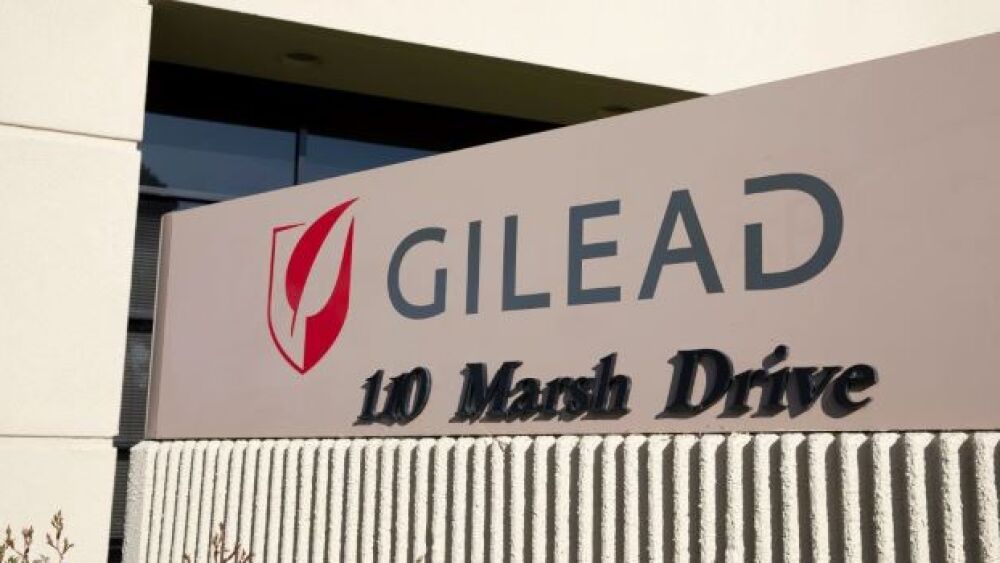The agency granted full approval to Gilead Sciences’ Trodelvy (Sacituzumab govitecan-hziy) for adults with unresectable locally advanced or metastatic triple-negative breast cancer (TNBC) who have received two or more previous system therapies, at least one for metastatic disease.
Liu Guanguan/China News Service via Getty Images
There has been discussion that the U.S. Food and Drug Administration (FDA) is getting tougher, and they are running an industry-wide evaluation of accelerated approvals. However, today the agency granted full approval to Gilead Sciences’ Trodelvy (Sacituzumab govitecan-hziy) for adults with unresectable locally advanced or metastatic triple-negative breast cancer (TNBC) who have received two or more previous system therapies, at least one for metastatic disease. It was originally granted accelerated approval about a year ago.
Accelerated approvals are typically granted for drugs with a high unmet need and require the companies to conduct post-marketing clinical trials to determine if, in fact, the drugs are as effective as they appeared to be in earlier trials. There have been some recent cases of drugs granted accelerated approval that were then withdrawn from the market after failing to confirm the original trial data.
On March 1, for example, Merck voluntarily withdrew the U.S. indication for Keytruda for metastatic small cell lung cancer (SCLC) with disease progression on or after platinum-based chemotherapy and at least one other previous line of therapy. And a week before that, AstraZeneca announced it was withdrawing its checkpoint inhibitor Imfinzi in bladder cancer over a similar response.
The full approval of Gilead’s Trodelvy was supported by data from the Phase III ASCENT trial, with Trodelvy demonstrating a statistically significant and clinically meaningful 57% decrease in the risk of disease worsening or death (progression-free survival (PFS). The drug extended median PFS to 4.8 months from 1.7 months for chemotherapy. The drug also increased median overall survival (OS) to 11.8 months compared to 6.9 months, which was a 49% reduction in the risk of death.
Trodelvy acts against the Trop-2 receptor, a protein often expressed in multiple types of epithelial tumors, including TNBC. In TNBC, high Trop-2 expression is linked to poor survival and relapse. The FDA granted accelerated approval for the drug in April 2020 based on objective response rate (ORR) and duration of response (DOR) data in a Phase I/II trial.
The new approval also expands the previous indication to include adults with unresectable locally advanced or metastatic TNBC who have received two or more prior systemic therapies, at least one of them for metastatic disease.
“Women with triple-negative breast cancer have historically had very few effective treatment options and faced a poor prognosis,” said Aditya Bardia, director of Breast Cancer Research Program, Mass General Cancer Center and assistant professor of Medicine at Harvard Medical School, and global principal investigator of the ASCENT study. “Today’s FDA approval reflects the statistically significant survival benefit seen in the landmark ASCENT study and positions sacitizumab govitecan-hziy as a potential standard of care for pre-treated TNBC.”
In addition to the U.S., Gilead has prepared regulatory submissions for Trodelvy in metastatic TNBC in the UK, Canada, Switzerland and Australia as part of Project Orbis. Orbis is a program of the FDA Oncology Center of Excellence (OCE) that offers a framework for companies to simultaneously submit cancer drugs among international partners. In addition, they are submitting the drug in Singapore through their partner Everest Medicines. The European Medicines Agency (EMA) has validated a Marketing Authorization Application for the drug in the European Union.
“Today’s approval is the culmination of a multi-year develop program and validates the clinical benefit of this important treatment in metastatic TNBC,” said Merdad Parsey, chief medical officer, Gilead Sciences. “Building upon this milestone, we are committed to advancing Trodelvy with worldwide regulatory authorities so that, pending their decision, Trodelvy may become available to many more people around the world who are facing this difficult-to-treat cancer.”
Featured Jobs on BioSpace





